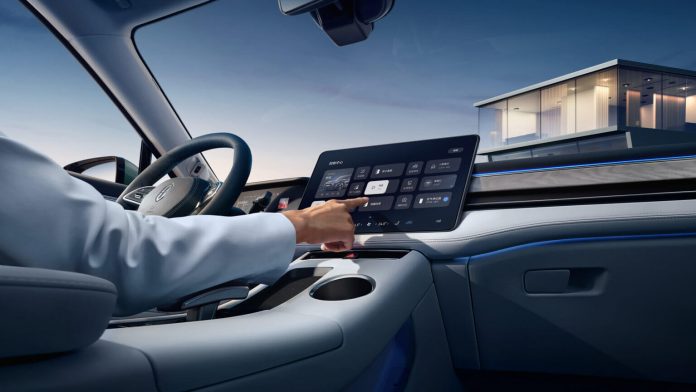On August 11th, some self-media published an article claiming that according to multiple sources close to Huawei, Huawei intends to promote the independent operation of its Car Business Unit and is currently in close contact with Chongqing State-owned Assets Supervision and Administration Commission for cooperation matters, similar to the way Honor operates independently. However, Huawei officially stated that “the rumors circulating online are not true.”
Huawei’s Car Business Unit (BU) was established in 2019. Its positioning is to focus on providing incremental components for the Intelligent Connected Vehicle Industry, serving automotive enterprise customers and industry partners. It aims to support the electrification, connectivity, and intelligence upgrade of the automotive industry, enabling car manufacturers to produce high-quality vehicles and become the preferred supplier of intelligent connected vehicle components in this era.
In May 2021, Richard Yu, CEO of Huawei Consumer BG (now Terminal BG), was appointed as the Chief Executive Officer of Car BU. Currently, Car BU is still under the umbrella of Terminal BG.
In its 2022 annual report, Huawei stated that the smart car solution business is a long-term strategic opportunity for the company. Since the establishment of the Intelligent Automotive Solutions (IAS) Business Unit, Huawei has invested a total of $3 billion and built a research and development team with a scale of 7,000 people. They have launched over 30 models of smart car components on the market.
By the end of 2022, nearly 2 million sets of components have been shipped, including smart cabins, intelligent driving systems, electric vehicles, vehicle cloud services, millimeter-wave radar, cameras, gateways, LiDARs (Light Detection and Ranging), computing platforms, AR HUD, T-Box products and solutions. The revenue generated from Huawei’s smart car solution business in 2022 was ¥2.077 billion ($287 million).
According to Huawei’s latest release of the 2023 first half-year performance: The revenue from the Intelligent Automotive Solutions Business in the first half of this year was ¥1 billion ($140 million).
Richard Yu’s speech at last year’s China Automotive Blue Book Forum also indirectly reflects the high investment in Huawei’s Car Business Unit. “Huawei has spent billions of dollars in the automotive industry, which is definitely a ‘money-burning’ business,” said Richard Yu. He previously stated that the goal of Huawei’s Car BU is to achieve profitability by 2025, and for this purpose, they need to help car companies sell one million vehicles.
According to Richard Yu’s previous vision for Huawei’s automotive business, Huawei aims to lead multiple car companies in forming its own “Wenjie” alliance and help these companies compete with industry giants through Huawei’s empowerment. Richard Yu stated that Huawei uses the most core technology of intelligent connected electric vehicles to assist partners in surviving and thriving in the era of intelligence, ultimately becoming industry giants.
Currently, companies such as Seres, Changan Automobile, BAIC Motor, Chery, and JAC Motors have chosen to cooperate with Huawei. Among them, BAIC, Changan, and GAC initially chose the HI mode (using Huawei’s complete solution), while Seres adopted Huawei’s deep empowerment intelligent selection mode. The AITO brand created by Seres and Huawei launched two models: M5 and M7. After achieving impressive sales of over 75,000 vehicles last year, AITO has shown a lack of momentum in sales for 2023 with monthly sales not exceeding 10,000 units.
However, Huawei’s automotive business is still pushing forward vigorously. Recently, the first pure electric coupe from Huawei Smart Selection Car was revealed. Richard Yu, on Weibo, stated that this vehicle will be the first to be equipped with HarmonyOS 4 operating system and will meet everyone in this quarter.

